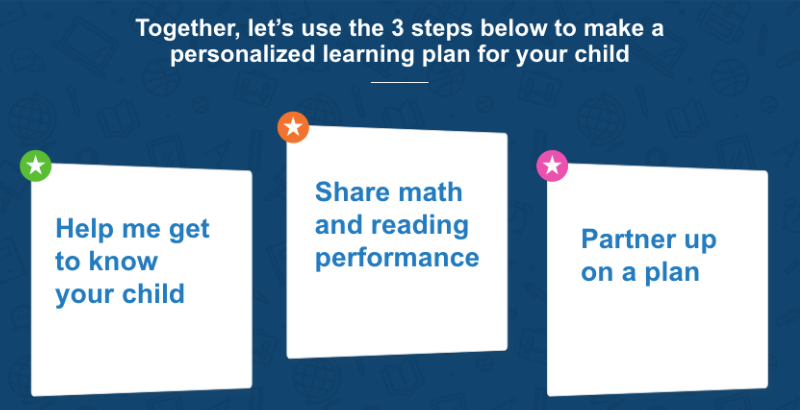Analysis: Surveys Show Parents, Teachers & Principals Are More Committed Than Ever to Working Together to Support Student Learning

Get stories like this delivered straight to your inbox. Sign up for The 74 Newsletter
We’ve all read the recent headlines about aggressive, angry parents bullying or physically abusing educators over topics ranging from mask mandates to high school reading lists. Though these incidents are real and certainly warrant examination, they should not overshadow the unique opportunity in front of us.
While some might see gain, political or otherwise, in pitting families and educators against each other, recent data from Learning Heroes paints a very different picture – one that shows school and home on the same side, not in opposition to each other.
For the past six years, we’ve conducted national annual surveys of K-12 parents. This year we also include teachers and, for the first time, principals. Our three national polls from September 2021 show strong agreement across all three stakeholders groups along several important dimensions. First, heightened levels of family engagement, sparked by the pandemic, are here to stay. More than 80 percent of educators and 90 percent of parents say they will be as or more engaged with each other this school year than last year. Second, they agree that safety and security of students, academic progress, mental health and emotional well-being are the most important priorities for schools this year. And third, when it comes to communicating between schools and homes, parents and educators alike prioritize having a clear picture of how a student is achieving and trust between families and teachers.
Their consensus could be the key to helping parents and educators team up around a shared understanding of student progress that has long been missing. Our data continue to show a stark gap between parents’ perceptions of their children’s academic performance and reality. Nine in 10 parents — regardless of race, income or education level — report their child as working at or above grade level in reading and math. Yet, only 44 percent of teachers report that their students are prepared for grade-level work this school year, a statistic similar to what National Assessment of Educational Progress data show. This is especially worrisome for low-income families and families of color, many of whom bore the brunt of the fallout from the pandemic.
The gap stems from parents’ belief that the good marks their children bring home on their report cards equate with grade-level performance. Over the past six years, 84 percent of parents have consistently reported that their child brings home B’s or above. Yet, almost half (48 percent) of K-8 teachers say grades measure effort more than achievement, and more than 6 in 10 (64 percent) believe parents focus too much on report cards alone to know how well their child is doing. Given this, it is easy to understand why there is such a disconnect between
what parents perceive and what teachers know about student achievement — especially as, this year, almost a quarter of parents reported that their children got higher grades last year despite widespread concerns about unfinished learning.
Yet, our most recent data give me hope rather than despair: Educators believe family engagement is essential to student success (87 percent agree), that it improves students’ academic performance (92 percent) and that it gives students essential social and emotional support (90 percent).
And when we asked parents, teachers and principals to describe, “the ideal connection you’d like to have between home and school,” trust, teamwork and collaboration ranked highest among all three groups.
There are bright spots where strengthening family-school partnerships is a priority. For example, as of June 2021, a new Texas statute requires schools to explicitly involve parents in designing a plan that accelerates learning for their child and gives families access to additional resources. Texas, California and Massachusetts, among other states, have made Learning Heroes’ parent/teacher planning tool available to educators to support parent-friendly, two-way conversations during parent-teacher conferences. The tool provides guided questions and suggested language so educators and parents can reach a shared understanding of each child’s strengths and areas for growth and together create a focused learning plan. While this isn’t the norm, it could be.
There is no question that the past two years of learning during the pandemic have strained both families and educators. But, as evidenced in our data, their shared experience also sparked a commitment and acknowledgment not seen before — for parents and educators to work together to serve all children’s educational, social and emotional needs. With unprecedented resources available from the federal government, states and districts now have a chance to deliver what parents and educators really want — to team up to support children’s learning.
Bibb Hubbard is the founder and president of Learning Heroes, an organization that connects parents to useful information and simple actions they can take to help their child thrive in school and life.
Get stories like these delivered straight to your inbox. Sign up for The 74 Newsletter

;)